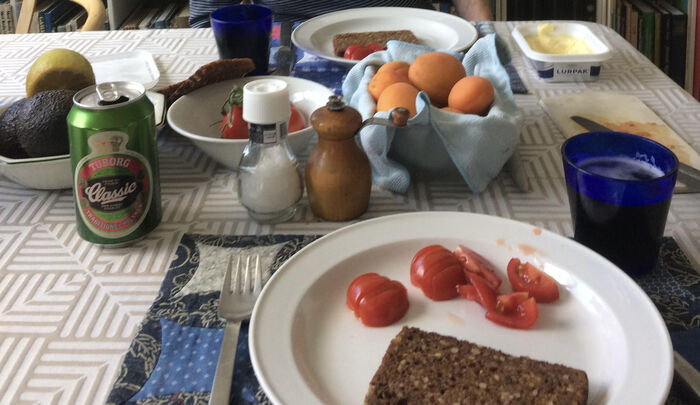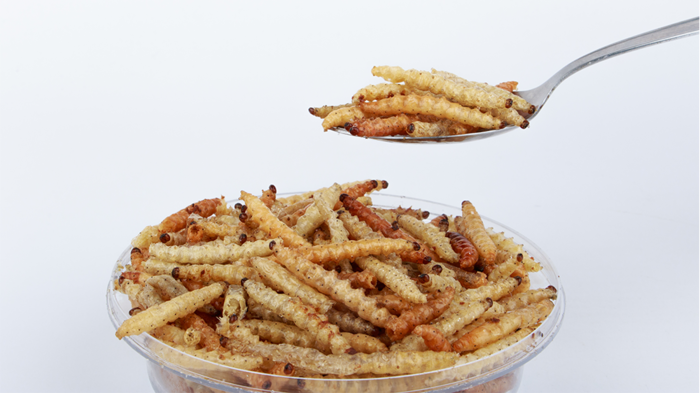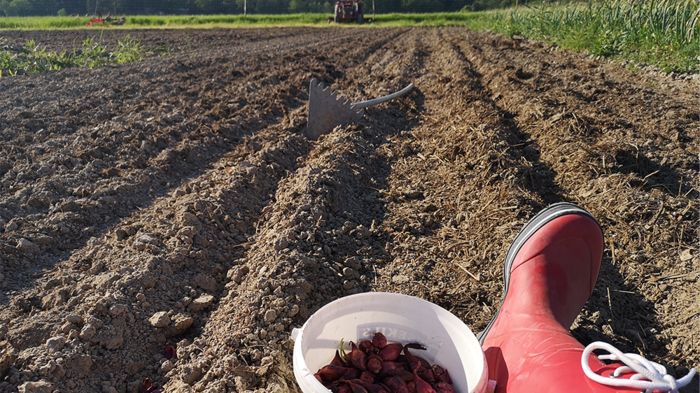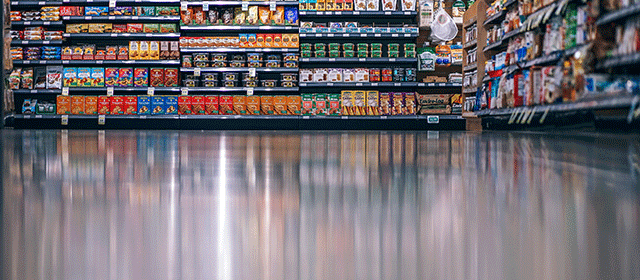Our awareness of where our food comes from and how it is produced has decreased with the increase of long distance products and large-scale food production. As a result, we expect to get avocados from Chile for our Friday tacos, and we know very little about the carbon footprint of the food we buy and eat.
As agriculture and food consumption is responsible for a significant amount of climate gas emissions, there is a need to look into models of food production and consumption that are more sustainable.
New forms of food production and distribution
.png)
New forms of food production based on more consumer involvement have popped up recent years, such as farmers' markets, food boxes, REKO-ringen and Community Supported Agriculture (CSA), or andelslandbruk in Norwegian. Will consumers’ involvement in local food production result in climate-friendly food habits and production?
The CSA farming model has many sustainability benefits; the farmer receives a fair wage as the shareholders take some of the risks (by paying a fixed fee), food items are locally produced, the production is land-intensive, the products are often organic and the products are more focused on vegetables than meat and dairy production.
These farms are also social environments where people can meet, learn about food production and share their experiences and knowledge of food.
Participation in local biodynamic food production can reconnect people with their food, but also with one another, the local community and with nature. Mutual learning and knowledge sharing are important to raise awareness on the sustainability challenges of food production and consumption.
Growing food, growing community

The CSA model can be implemented in various ways, depending on local geopgraphical, economic, cultural and social contexts. For example, in some cases CSA members are not required to commit to voluntary working hours and instead received their boxes through a pick-up system. This decreases the direct personal contact between the farmer and members, and between the members amongst each other.
The principle of ‘growing food, growing community’ could be taken literally, as the shared practice of growing and harvesting food establishes stronger social relationships. At the same time, the members learn about the farming practices and the effort that goes into the work.
To have one’s hands on the soil and see seedlings grow into the vegetables on one’s dinner plate increases a personal connection to, and appreciation for, the food.
Getting consumers involved in food production
.png)
We need to grow our sense of connection to, and reimagine our relationship with our natural environment to enable a more sustainable future. If a transition in food consumption practices is desired, the farming models based on sharing and involvement has significant potential to increase consumer awareness on how food is grown, and to build knowledge on sustainable behaviour.
Getting consumers involved in food production may also challenge industrial thinking that assumes a dichotomy between humans and nature, and allows the reaping of nature and natural resources for economic benefits.
In this light, the CSA provides a possible solution where the relationship between the farmer and the consumers is personalised and food is locally provided. Hopefully, a reconnection with food production and nature will foster an ethic of care for both the resources we share on this planet.
A longer version of this text is published in CICERO Klima.
 About the project
About the project
This blog is based on the research done in the CICERO led project ShareOn, which looks at how sharing economy and collaborative consumption can nudge people’s behaviour and habits in a more climate-friendly direction. In the ShareOn project, Karina Standal and Imre van Kraalingen has looked specifically at the CSA farming model where people can become ‘farmers’ or shareholders in a farm. Through paying a fixed fee and providing a few hours of labour the shareholders can harvest a portion of the yield in return.
Master project
Imre van Kraalingen has just submitted her master thesis at SUM - Centre for Development and the Environment, University of Oslo. Her thesis will be available online in DUO fall 2019: "Cultivating Embodied Connections in Biodynamic Agriculture: A comparative study of local meaning-making at Earth Haven Farm in Canada and Nordgard Aukrust in Norway".






Logg inn for å kommentere
Ikke UiO- eller Feide-bruker?
Opprett en WebID-bruker for å kommentere